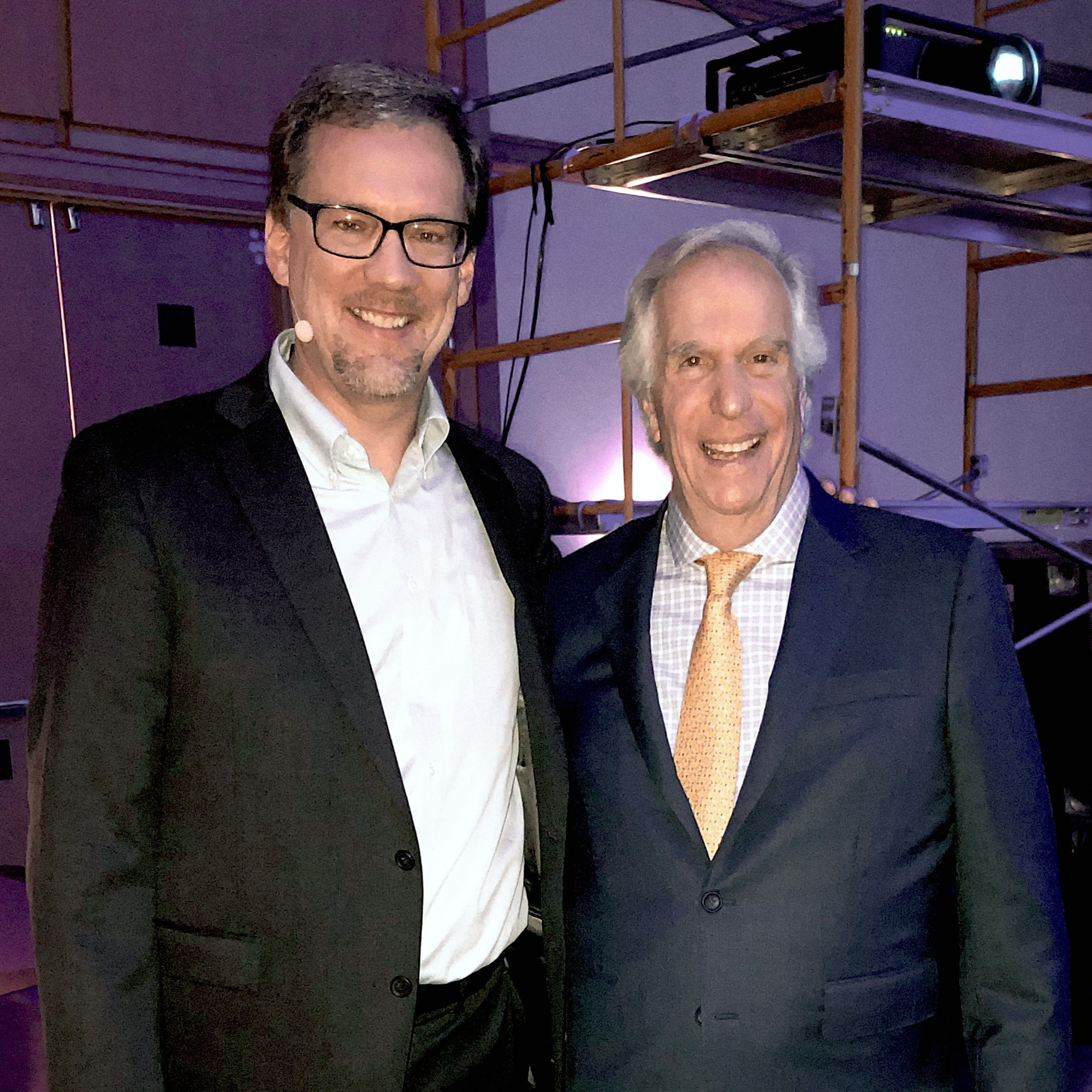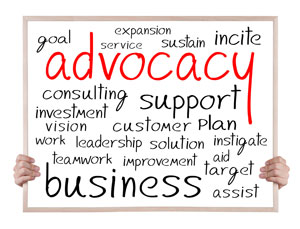The Edge of Service® – Insights to Elevate Customer Experience
A Must-Read Newsletter on the Trends, Strategies, and Innovations Shaping Service Delivery
Subscribe to get notified.
Issue 56
CX Transformation Success Principles
Customer experience transformation is characterized by continuous improvement and change. Here are principles to guide change, process, and project management.
Issue 55
A New Wave of Work Is Coming to Contact Centers
AI is impacting every colleague, every department, every customer, every industry, and every stakeholder. It is creating new work and new demands.
Issue 54
Powerful Lessons in Innovation
Recently, I got to live out a lifelong dream of mine. The experience taught me some unexpected and powerful lessons on innovation and quality.
Issue 53
Gallup’s Employee Engagement Bombshell: Why I’m Not Buying It
Gallup’s latest State of the Global Workplace report (2024) finds that 77% of employees worldwide are not engaged at work. I’m not buying it. Here’s why.
Issue 52
What’s Happening with Contact Center Workload?
Is the work handled by agents being supplanted by AI, digital channels and self-service? The answer will impact your budgets, hiring, workforce plans, really everything.
Issue 51
Unmasking the Service Illusion
We are seeing a remarkable evolution in the realm of customer service. However, the true measure of progress lies in the experiences of our customers. How are we doing?
Issue 50
Future-Proof Your AI-Powered Customer Service
AI is dramatically transforming customer service. The opportunities – and risks – are unprecedented. As we leap into the future, how do you ensure your organization is keeping up?
Issue 49
How Generative AI Will Transform Contact Centers and Shape Your Career
Generative AI is taking the world by storm. Here are 3 predictions and 4 recommendations to help you navigate what’s to come.
Issue 48
What Do Customer Service Leaders Need to Know About Customer Queues?
Queues are the doorways to your organization. But the dynamics and math behind them can be intimidating. What do customer service leaders need to know?
Issue 47
Building the “Frictionless” Organization—an Interview with Bill Price
Bill Price and David Jaffe believe that customer contacts provide valuable insight into where organizations can reduce friction through better processes, services, and products—a view I’ve long shared.
Issue 46
Who are your innovators?
I once had a chance to meet and talk with the late W. Edwards Deming. He lamented the fear he found among employees in many organizations. Many employees see innovation as risky. Innovation is a cool word. But at its heart is change—doing things differently.
Issue 45
The Customer Experience Sixpack
There are six dynamics essential to customer experience leaders. These are the six underlying and most basic dynamics at work: demand, supply, quality, employee engagement, customer satisfaction, and innovation.
Issue 44
Refocus on Customer Advocacy
Customer advocacy means building a culture where everyone in every role is advocating for customers. Think of customer advocacy as an ingredient that complements all of the activities already happening across the organization.
Issue 43
Controlling Contact Center Costs—the Right Way
Cost control efforts needn’t entail across-the-board cuts, mandated handling times or forcing unwilling customers into automated systems. It is possible to control costs and maintain services that support great customer experiences.
Issue 42
Do your goals and metrics foster employee engagement?
What do organizations with the most engaged employees have in common? A key to ensuring employee engagement is having the right goals and metrics. You can do a lot of things right, but if the goals and metrics being emphasized day to day are getting in the way — well, good luck.
Issue 41
A Humbling Lesson in Customer Experience
Here’s the reality with customer experience. It’s both far bigger — and much smaller — than many realize. It’s all-encompassing. It’s big. But it also comes down to any one interaction or issue that can make an indelible impression on the customer.
Issue 40
The Best Way to Improve Employee Engagement
When you peel back the layers of any customer-centric organization, you’ll find a culture of honoring employees, encouraging their insight, and engaging them every step of the way. Customer experience is built on a foundation of employee engagement.
Issue 39
Customer Experience ROI: Risks of Inaction
One of the most important things you can do as a customer experience leader is to illustrate the returns on improvements — or the costs and risks of doing nothing. My recommendation is to build a “toolkit” (repertoire) of methods you draw from.
Issue 38
The Biggest Barrier to Improving Customer Experience
Whether you lead a team, department, or organization, customer experience leadership has never been more important. The challenges of finding and keeping the right employees and the uncertainties created by an evolving pandemic that has gone on far longer than most predicted—these issues are front and center for every leader.
Issue 37
It’s Time to Revisit Service Level
Managing customer wait times—keeping them within reason and within expectations—is a perennial focus in any customer service environment. Service level—ensuring customers get to the right place in a reasonable amount of time—is central to that effort. Yes, the quality of service delivered is what ultimately matters most. But you can’t even get started until customers get to the right places at the right times.
Issue 36
Everyone Has a Role in Customer Experience Innovation
The world is changing, and customer expectations are evolving. So, innovation is the heartbeat of customer experience. But how do you innovate? Innovation, the late Peter Drucker points out in his landmark book, The Discipline of Innovation, is the “effort to create purposeful, focused change in an enterprise’s economic or social potential.”
Issue 35
Time to Revisit Your Customer Experience Vision?
A clear customer experience vision, well-communicated and continually reinforced, is essential to engaging your employees, aligning objectives, and driving action. Vision can take many forms, including a vision statement, a mission statement, a set of values, or some overarching principles or standards. Don’t worry about a specific formula or label for your vision.
Issue 34
Customer Experience Leadership—More Important Than Ever
Customer experience leadership has never before been more important than it is right now. Because customer experience is a unique journey. Finding the right approach is a unique journey for every organization. If you could simply acquire “the answers” on what creates a great customer experience, leadership wouldn’t be important.
Issue 33
Leading from a Distance
Information and communications technologies have created organizations that span geography and time. Multi-site environments, cross-functional teams, and extended-hour or 24/7 operations are common examples. If you are a manager or director, you may have the responsibility of getting results from those who work in different locations, who don’t report to you, or who don’t work the same hours.
Issue 32
Do Contact Center Management Fundamentals Still Apply?
The technologies powering today’s always-on world, along with fast-evolving customer expectations, are dramatically changing the nature of how products and services are provided and supported. Many leaders are wondering where the trends and developments are taking us. Will the fundamentals of contact center management still apply?
Issue 31
What Today’s Customers Expect
Meeting customer expectations with the right services is fundamental to building a strong brand. The challenge, of course, is that customers’ experiences with any organization—not just yours or others in your industry—shape their perceptions.
Issue 30
Principles of Effective Budgeting
Ensuring that you’re getting necessary resources is an important part of enabling customer service to produce the value it can and should. Let’s look at what a budget really is—and seven principles to getting the best results possible.
Issue 29
Your Organization’s Personality
When I was growing up, I used to love watching the American sitcom Happy Days. I’d occasionally get in trouble, and I knew it was really bad if I got grounded from seeing one of the shows. (These were before recording or on-demand options existed—if you missed it, you missed it.) My favorite character was, without question, the Fonz.
Issue 28
Motivation: Removing the Barriers
As a leader, you have to be able to motivate your team members. In fact, you probably need to be able to motivate others well beyond those who formally report to you. There may be no responsibility that’s more important to getting great results.
Issue 27
Managing Customer Feedback—as It Happens
An important aspect of building customer relationships is managing customer feedback. This includes both short- and long-term objectives: it involves responding to feedback as it happens and collecting and analyzing feedback from many customers to look for recurring problems and opportunities.
Issue 26
How Effective is Your Strategy?
There are many ways to approach customer service strategy. But there are some common characteristics among organizations that have the most success.
Issue 25
Tech Leadership—for Non Techies
Developments around how information travels, and the shared protocols and standards, have opened up a world of opportunity. For example, your service operation can easily be distributed, with multiple sites and even home-based employees.
Issue 24
How Customer Service Drives Innovation
Ensuring that your organization is getting maximum benefit from the effort and investments you’re putting into customer service is an important leadership opportunity. Let’s explore ways you can boost the value of customer service.
Issue 23
The Power of One
The “power of one” is among the most important principles for anyone delivering customer service to understand. (No one ever explained it to me when I was getting started, and it would have been so helpful!) Let’s take a look.
Issue 22
The Highest Level of Leadership
This past summer, I had the (bucket list!) opportunity to play golf with four NFL quarterbacks. I was designated as a cart driver, and my number one objective was to not tip over and injure a player…
Issue 21
Customer Advocacy
If you do a search for customer advocacy, you’ll find many different definitions. But they all tend to fall into one of two general categories.
Issue 20
TEDx: Thriving in an Always-On World
Being always connected…is it a blessing or a curse? Are we in charge, or are we slaves to our smartphones?
Issue 19
Three Predictions for 2017
By any measure, 2016 has been a dynamic year for customer service. Customer expectations evolved at a fast clip, social continued to emerge as a powerful service channel, and many organizations made genuine strides to become more customer-centric (with a notable trend to cultivate services that are mobile-friendly).
Issue 18
Why You Won’t Catch Cinderella Smoking
To be effective, the quality standards you establish for customer service employees must meet three key requirements.
Issue 17
The Stunning Stats Behind Employee Engagement
I believe there are three categories of statistics any leader needs to know about employee engagement:First, employee engagement is strongly tied to customer experience.
Issue 16
Four Levers for Innovation in Customer Experience
I’m writing this from an eastbound Delta flight, 36,000 feet over northwest Colorado. The onboard wireless service, provided by Gogo, is enabling me to track flight progress and catch up with some research and email..
Issue 15
Getting Mobile Customer Service Right
There are an estimated 7 billion active mobile phone subscriptions today—one for every living person on the planet, according to the International Telecommunication Union (ITU). Of course, the number can be misleading, given that many people in developed regions have multiple devices, while others still do not have access..
Issue 14
Hiring for Service: It’s Time for a Rethink
Imagine dropping onto Earth from another planet. Your task is to explore our economy—jobs, what we produce, and how we hire and train people for those roles. You’re not familiar with precedent, history, or what’s transpired to this point. You simply look around and take note of what employees do, the skills required, the challenges they face, the value they create. Teachers, actors, pilots, managers, and others..
Issue 13
Statistics Behind a Service Revolution
Watermark Consulting hit something of a research jackpot with a simple correlation between stock price and customer service rankings. In the seven years leading up to 2015, they found that the S&P 500 index grew 51.5%. Customer experience leaders in that same timeframe enjoyed an average appreciation of 77.7%, while laggards saw their average share price actually go down (-2.5%).
Issue 12
The Keys to Social Customer Service
Being part of “the conversation”—listening to customers and interacting with them where they are—was until recently a powerful differentiator. But it’s now becoming a competitive necessity. And that’s true whether you’re a small startup or a multinational corporation.
Issue 11
A Multichannel World
If you were to walk into an Amazon.com customer contact center, you’d see desks turned sideways so that Fire tablet support agents have a neutral background for video calls (one-way, agent-to-customer). Visit the GM customer assistance group focused on social channels, and you’re more likely to hear the clickety-clack of keys than voices…
Issue 10
Beware Others’ Benchmarks
Let me begin with a quick preface. The title is “beware others’ benchmarks,” not ignore them, or be uniformed of them. Benchmarks are necessary. But to the definition of beware… be on guard, be wary.
Issue 9
How “Waiting in Line” Is Changing
If you care about delivering effective service—whether you head a multinational, direct a division, or are simply intent on meeting commitments as an individual—there are three things to know about queues…
Issue 8
The Trait All Successful Service Leaders Share
Janet Bailey was still in high school when she got her first job—working in a call center. It later evolved into a part-time arrangement that allowed her to work while she attended college. She recalls huge phones, multiple lines, and data entry on pen and paper. “When the phone rang, a line would blink and one of us would grab it.”
Issue 7
The Culture of Great Service
Culture is top-of-mind in today’s most customer-focused organizations. It likely always has been, but I’m seeing a marked increase in requests to “discuss culture” when speaking to groups or looking at industry trends with executive teams.
Issue 6
Hands-On Vision
Dorasan Station, the last stop on our tour of the DMZ, is a railway station that initially opened in 1906 and once linked Seoul and Pyongyang. It was destroyed in the Korean Conflict but restored within the last decade, with help from thousands of private donors.
Issue 5
Customer Interaction Is Changing the Game
Jed York, the youthful 33-year-old CEO of the San Francisco 49ers, is bringing a storied team that had fallen on hard times back to prominence. San Francisco won the NFC Championship title last year and came razor-close to winning the Super Bowl.
Issue 4
Staying in the Know
The lightening-caused Beaver Creek Fire, near Sun Valley, ID, was fueled by a perfect storm: heavy forests, challenging terrain, dry late-summer conditions, and unusually strong winds that were whipping up flames and sending hot embers miles from the fire’s edges (prompting the nickname “Multiheaded Beast” by fire crews).
Issue 3
Managing Time
I remember the surreal day I felt like a master of time. I had conducted a workshop in South Africa and was traveling to Toronto, where I was to deliver the keynote for a conference the next day. My route from Johannesburg included a connection in London, but when I arrived at Heathrow Airport, I was informed that the Toronto-bound plane had “a mechanical” and would be rescheduled for the next morning.
Issue 2
What the Adventuress Teaches About Organization
I recently was drawn out of a hat to be one of just a few parents to accompany my ten-year-old daughter’s fifth-grade class on a week-long sailing trip—a school tradition dating back many years. The adventure takes place on a suitably named schooner, The Adventuress, based near Seattle.
Issue 1
Is Russia a Service Bellwether?
I recently returned home from Russia, where I delivered a keynote and seminar (through simultaneous translation) on service trends and management at CCWF13 in Moscow. This was my first time working in Russia and, having had the opportunity to work in 60 or so other countries over the years, it was high on my to-do list.























































